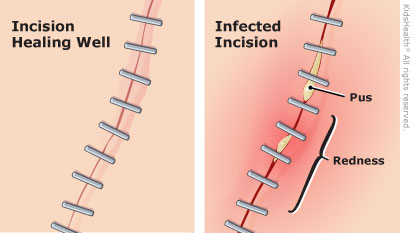Kidney transplantation gives your child a healthy, working kidney. You'll need to be extra careful over the next few months.
Your health care provider has prescribed medicine to keep your child's body from rejecting (not accepting) the new kidney. A side effect of the medicine is that your child is more likely to get infections. Sometimes, the area around the surgical site also can become infected.
The transplant team will work with you to keep your child healthy.


Medicines:
Infection Prevention:
Diet and Activities:

Your child:

Your child:

What should I think about when planning travel? When your family travels: